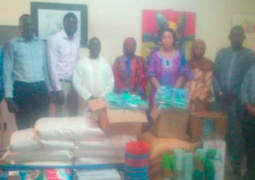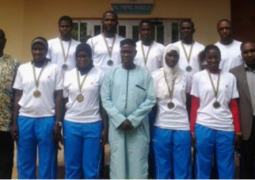It
is great news to learn that our lawmakers approved a financing agreement to the
tune of US$29, 800,000.00 signed between The Gambia government, Islamic
Development Bank and the Arab Bank for Economic Development in Africa (BADEA).
The money is earmarked for the financing of the regional rice value chain
development project in The Gambia. The projects seek to boost clean rice
production, reduce rice importation and thereby improve the nutritional status
of the growing population.
Agriculture
is key to sustaining any nation’s economy. It is the perfect channel to food
security and food self-sufficiency. It is the foundation upon which all other
developments are built.
The
confidence of our lawmakers in our ability to become a food self-sufficient
nation is indeed realistic, coming at a time when many of our youths are losing
their lives on the oceans, in desperate attempts to go in search of greener
pastures in Europe. We have to boost the confidence of our youths that they can
make it here in the country. This will in turn make agriculture a profitable
enterprise among them instead of embarking on the perilous sea journey to the
west.
What
is more alluring is that the project will pave the way for mass participation
in rice production processes through community agreements that are endorsed by
government. Strengthening farmers’ organisations in that regard is key and so
they would serve as the entry point to reach farmers and to provide services
and manage machinery in a sustainable manner.
The
2007 global food price crisis has prompted many countries around the world to
take a new approach and employ new mechanisms in making agriculture an
enterprising and sustainable sector. And countries in Asia, Africa and the
Middle East have moved towards self-sufficiency in response to the crisis,
either by boosting agricultural production at home through subsidies and import
tariffs or employing new approaches just to provide enough food for their
people.
The
Food and Agriculture Organization of the United Nations forecasts that global
trade of food staples will surge to 300M tonnes by 2050, up from the current
135M tonnes.
Therefore,
trump up the former regime’s popular adage; let’s eat what we grow and grow
what we eat.
‘‘Rice production
in Sub-Saharan Africa
(SSA) is dominated
by subsistence, smallholder farmers who have limited access to markets, no equipment other than hand-held
tools and limited use of inputs.’’
Agriculture
Read Other Articles In Article (Archive)



